
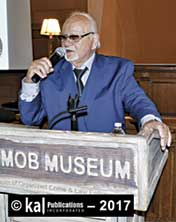
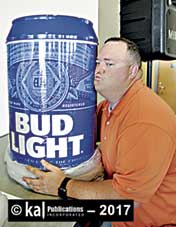
Nevada Petroleum and Convenience Store Association “Big Dog” Shootout
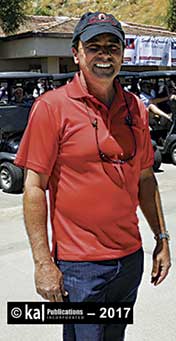
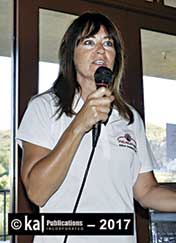
Fuel Relief Fund Golf Tournament
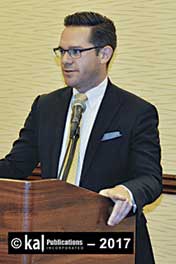
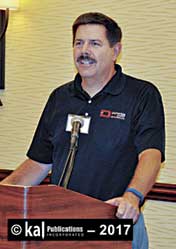
CIOMA Regional Meeting
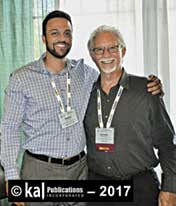
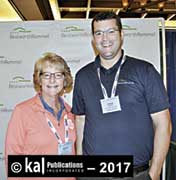
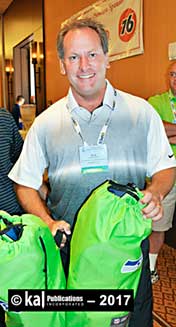
Washington Oil Marketers Association Convention
Want to see the photos that didn't make the issue? Check out the Cutting Room Floor.
Tesoro and
Western Refining Merge, Become Andeavor
Seattle Says Yes, Santa Fe Votes No on Soda Tax
SoCo Group Settles with EPA Over Tanker Spill
Fleetcor Restructures North American Business
Fulcrum BioEnergy to Refine Trash into Biofuel
SAN ANTONIO, TX. — On June 1, Tesoro completed its previously announced acquisition of Western Refining. The purchase has been valued at approximately $6 billion.
Included in the deal are Western Refining's refineries in El Paso, TX., Gallup, NM., and St. Paul Park, MN., as well as service stations and convenience stores in Arizona, Colorado, New Mexico, Minnesota, Texas, and Wisconsin.
With the acquisition, Tesoro will now control 1.1 million barrels of refining capacity as well as have 13,000 employees, 4,800 miles of pipelines, and over 3,000 retail locations.
Tesoro officials noted they do not currently have plans to rebrand any of the stations formerly owned and operated by Western Refining. The majority of the former Western Refining stations are branded Giant, SuperAmerica, and Howdy's.
Greg Goff will continue to serve as chairman, CEO, and president of Tesoro. Former Western Refining Executive Chairman Paul Foster and CEO Jeff Stevens have accepted seats on the Tesoro Board of Directors.
As part of the combination of the two companies, Tesoro announced a new corporate name, Andeavor, which will become official as of August 1.
While Andeavor will be the new corporate name, the company's existing brands will continue to be used for the company's retail operations. The Andeavor name will be used for the company's refining, marketing, and logistics businesses. The Tesoro stock ticker symbols will also change to ANDV on August 1.
"We are excited about the continued transformation of Tesoro, and our acquisition of Western represents another significant milestone in our journey," noted Goff in an official statement. "We are well prepared and will immediately move forward with the integration of our companies and capturing synergies."
SANTA FE, NM. — The issue of soda taxes has been on the mind of local governments across the West, with very different outcomes.
In Seattle, WA., the Seattle City Council approved a new tax of 1.75 cents per ounce on distributors of sugar-sweetened beverages, a measure signed into law by Seattle Mayor Ed Murray and taking effect in early July.
Diet sodas that use artificial sweeteners, as well as baby formula, medicine, weight-loss drinks and 100% fruit juice, are all exempt from the new tax. Sugar-sweetened sports drinks, energy drinks, fruit drinks and syrups used in fountain sodas are all covered. The taxation of sugar syrups to flavor coffee — one of the most prevalent uses of sugar in beverages — is still being determined due to public outcry.
The tax is expected to bring approximately $15 million per year into government coffers. In an ironic move, the City Council earmarked $1.5 million over the first five years of the soda tax for "retraining programs to assist workers" in the soda industry who are expected to lose their jobs because of the City Council's action.
The City Council said they will also earmark some of the money to reduce "disparities between white and African-American students and other historically underrepresented students of color." This was also seen as ironic as testimony to the City Council noted that wealthier people and white people tend to drink more diet sodas, so the tax will have a greater negative effect on minority and poorer citizens.
In Santa Fe, NM., the issue of soda taxes was put to the voters in a special election and the proposed 2 cents per ounce tax was defeated 11,533 to 8,382.
Santa Fe Mayor Javier Gonzales was a strong supporter of the tax, which would have increased the cost of a can of soda by approximately 25 cents. The expected $7.7 million per year generated would have been used to expand pre-kindergarten (pre-K) programs for Santa Fe children.
Local analysts found one of the major reasons the bill failed were the same reasons cited in the Seattle government action: the soda tax would have a greater negative effect on minority and poorer citizens — and those citizens came out and voted against the proposition.
LOS ANGELES, CA. — The SoCo Group, headquartered in Carlsbad, CA., has settled claims filed against it by the U.S. Environmental Protection Agency after a traffic accident caused a spill of diesel fuel.
On May 13, 2016, a SoCo tanker truck was overturned while transitioning from Interstate 8 onto Morena Boulevard in San Diego, CA. The truck discharged approximately 3,715 gallons of diesel fuel, some of which migrated through storm drains into the San Diego River and adjoining shorelines.
Within minutes of the spill, the SoCo Group activated its emergency response contractor to begin clean-up and prevent further spread of the fuel. Within 72 hours, an estimated 3,000 gallons were recovered. About 60 cubic yards of contaminated vegetation and 900 cubic yards of contaminated soil were removed and disposed of at a permitted facility.
The EPA was one of several agencies, including the San Diego County Environmental Health's Hazardous Materials Division, the California Highway Patrol, the California Department of Fish and Wildlife, San Diego Public Works, the San Diego Police Department, the U.S. Department of Fish and Wildlife, and the U.S. Army Corps of Engineers who were involved in the cleanup, which was completed in September 2016.
The EPA then filed a federal claim against The SoCo Group, alleging that the spill was caused because the truck driver was driving at an unsafe speed, causing the accident. They also charged the jobbership had violated the U.S. Clean Water act as "any discharge of oil into waterways or nearby environments is a violation of the Clean Water Act."
The SoCo Group agreed to pay a civil penalty of almost $59,400, according to the EPA, to settle the case.
NORCROSS, GA. — Cardlock giant Fleetcor Technologies, Inc., has restructured its fuel card business in North America.
The company is dividing its North America fuel card business into three divisions: local fuel cards, partners, and trucking. The new business structure will be effective as of July 1.
David Maxsimic will continue to head the North America Partner business and Greg Secord will continue to head the North America trucking business, but Fleetcor officials noted that "both David and Greg will take on additional responsibilities under the realignment."
The new division, the North America local fuel card business, will be headed by Ashley Thekkekara. He takes over leadership of this business segment from Todd House, who announced his intention to resign.
"I am extremely proud of what we have accomplished over the last eight years," said Todd House, as he prepares to leave Fleetcor. "I have worked closely with Ashley and have complete confidence that the North American local fuel card business is poised for years of growth under his leadership."
Thekkekara has been with Fleetcor since 2009 and "is an accomplished executive with proven operational expertise that has helped lead our growth in fuel cards in North America," said Ron Clarke, CEO of Fleetcor Technologies, in an official statement.
PLEASANTON, CA. — Fulcrum BioEnergy has announced that they have developed a process to convert household trash into biofuel.
Fulcrum says their new process will transform municipal solid waste into low-carbon transportation fuels including as jet fuel and diesel. The company has signed long-term agreements with Waste Management and Waste Connections, Inc. to provide waste that Fulcrum will be able to use to convert into fuel. It has also built a Feedstock Processing Facility in Lockwood, NV., which separates organic materials out of the trash as the first step in the refining process.
According to Fulcrum Vice President of Administration Rick Barraza, the processed fuel is "80 percent cleaner than a petroleum product." Because of the low cost of the 'feedstock,' Barraza predicted that the final product will be able to be marketed at a lower cost than fossil fuels.
Fulcrum is in the process of building their first commercial refinery, Sierra BioFuels Plant, on 19 acres in northern Nevada's Tahoe Reno Industrial Center. The facility will have capacity to produce 11 million gallons of fuel from trash annually once the plant is operational. It is expected the plant will be producing fuel by the end of 2018.
Once the Reno facility is on line, Fulcrum says they plan to build eight plants across the United States in the next five years with a total capacity of over 300 million gallons of jet fuel and diesel.
Fulcrum was awarded a $105 million Biorefinery Assistance Program loan by the USDA, guaranteed through Bank of America, to build the biorefinery. The company also stated that Cathay Pacific and United Airlines are both equity investors in the company and both have signed long-term jet fuel supply agreements with Fulcrum.
Originally published in the August 2017 issue of O&A Marketing
News.
Copyright 2017 by KAL Publications Inc.
Serving the 13 Western States, the World's Largest Gasoline, Oil, Fuel, TBA and Automotive Service Market